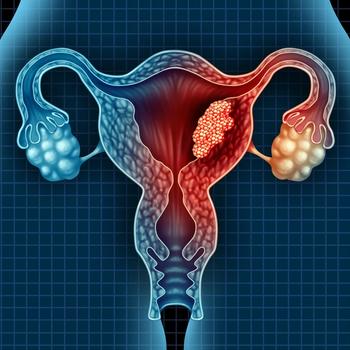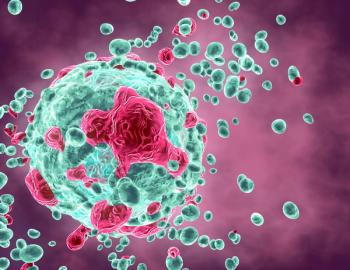
Could ER/GR Interplay Affect Endometrial Cancer Prognosis?
Researchers discovered that estrogen receptor alpha and glucocorticoid receptor are simultaneously expressed in many endometrial cancers, and may be associated with poor prognosis.
New data are suggesting there is phenotypic and molecular interplay between estrogen receptor (ER) alpha and glucocorticoid receptor (GR) in endometrial cancer, which may be affecting outcomes. In an article
“Estrogen receptor alpha, a steroid hormone receptor, is already known to play an important role in the disease and its expression is associated with good prognosis. What we discovered is that glucocorticoid receptor expression is associated with poor prognosis in the context of high estrogen receptor alpha expression in endometrial tumors,” said study investigator Jay Gertz, PhD, an assistant professor in the Department of Oncological Sciences at Huntsman Cancer Institute, University of Utah School of Medicine, Salt Lake City, Utah.
The researchers used publicly available databases, mouse models, 3-D cultures, and genomic analyses to examine how the two different receptors work. Using the National Institutes of Health Cancer Genome Atlas Project, they were able to identify a connection between ER expression and GR expression that had not been previously identified. “The association of glucocorticoid receptor with aggressive endometrial cancer was completely unexpected, because corticosteroids block normal uterine growth in animal models,” Getz told Cancer Network.
The researchers studied the effects of estrogen and corticosteroids on the endometrium in mice using a cancer precursor model. They discovered corticosteroids made the lining of the uterus stop growing, but once the mice were given high doses of estrogen the growth suppression was lost.
The researchers report that dexamethasone reduced normal uterine growth in vivo. However, this growth inhibition disappeared in estrogen-induced endometrial hyperplasia. The researchers found there was a low genomic-binding site overlap when ER and GR receptor are induced with their respective ligand. Interestingly, that changed when there was simultaneous induction.
The findings suggest further evaluation of dexamethasone, especially since it is commonly prescribed to treat side effects from surgery and chemotherapy in cancer patients. Currently, Gertz cautions more research is warranted before making any conclusions related to this agent. The researchers emphasize that there needs to be an investigation into the mechanisms connecting estrogen and glucocorticoid pathways.
“The take-home message is that corticosteroid signaling may lead to more aggressive forms of endometrial cancer, suggesting that patients whose tumors express high levels of glucocorticoid receptor may need different clinical management of the disease,” said Gertz.
Newsletter
Stay up to date on recent advances in the multidisciplinary approach to cancer.




































